The Underground AI Economy: Top AI Tools Thriving in the Shadows

While new AI tools launch daily with promises to revolutionize workflows, how can we tell which ones achieve sustained, practical use beyond the initial hype? The answer lies not in funding announcements, but in API consumption. An API bill is a tangible vote of confidence from developers investing their own resources into a tool.
To get an unfiltered view of the AI landscape, we can analyze objective usage data from OpenRouter, a neutral gateway connecting hundreds of large language models (LLMs). Its backend traffic provides aggregate data on API calls, revealing which services are truly in demand.
Top AI Tools by API Usage: The Underground List
Based on OpenRouter's public data for September 2025, here are the top 10 most-used services by API call volume:
- Kilo Code
- Cline
- BLACKBOX.AI
- Roo Code
- liteLLM
- SillyTavern
- ChubAI
- HammerAI
- Sophia's Lorebary
- Codebuff
This list is surprising. It's dominated by niche players like Kilo Code and SillyTavern, while household names like GitHub Copilot or Perplexity are absent. This is because industry giants build walled gardens, locking users into proprietary ecosystems. They have no need for a third-party gateway like OpenRouter.
This exclusion is what makes the list so revealing. It uncovers a parallel AI ecosystem—the underground AI economy—a thriving world of open-source projects and indie developers where utility, not marketing, drives success. Here, developers vote with their wallets, one API call at a time.
Their votes point overwhelmingly in two directions:
- AI Coding Agents: Tools that empower developers, occupying six of the top ten spots.
- AI Role-playing and Entertainment: Platforms providing creative outlets, claiming most of the remaining spots.
This list reveals the challengers growing rapidly in the wild. Let's explore this underground world and meet the contenders.
Top AI Coding Agents and Development Tools
1. Kilo Code: Open-Source AI Coding Agent for VS Code
In a nutshell: An open-source, plug-and-play AI coding agent for VS Code that automates repetitive development tasks.
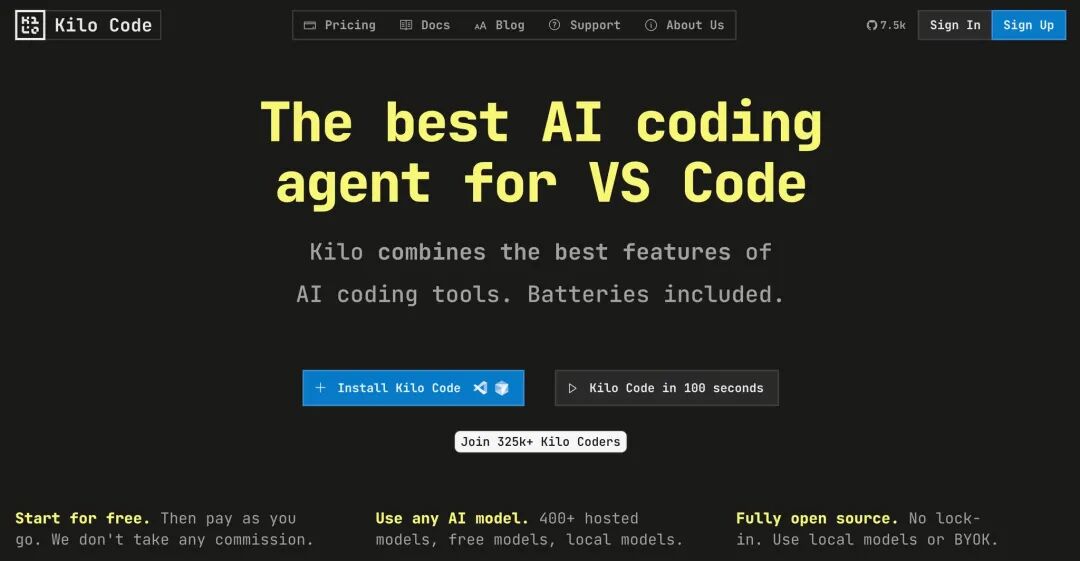
Kilo Code, from a remote-first team, is designed to let AI handle time-consuming tasks like dependency management, bug hunting, and documentation updates. This allows developers to focus on high-value work like architecture and creative problem-solving.
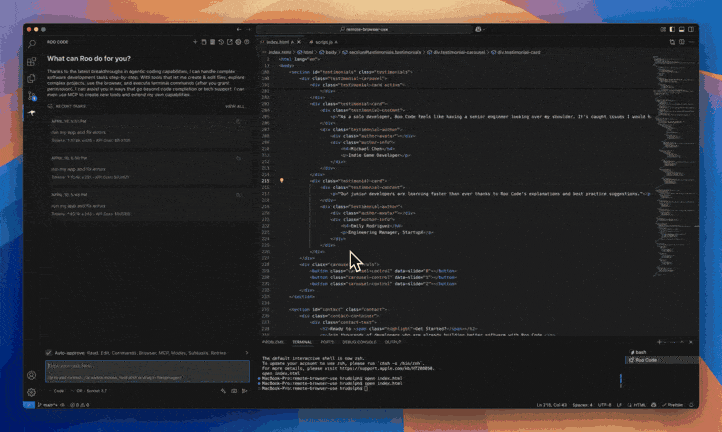
In its "Orchestrator" mode, Kilo Code transforms complex projects into an AI-powered workflow, assigning tasks to specialized agents like an Architect, Coder, and Debugger.
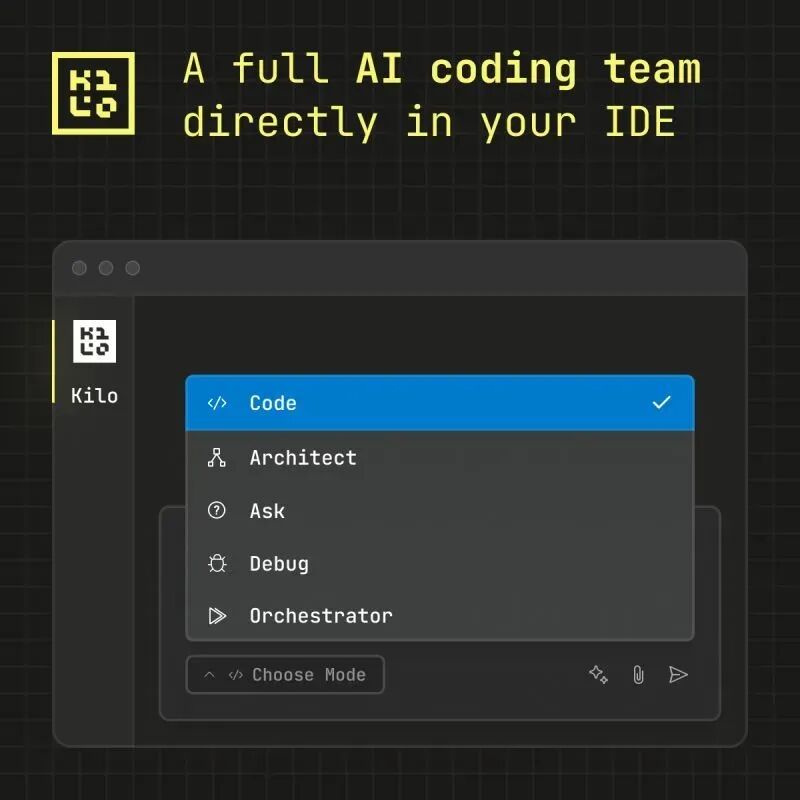
The entire process is designed to be seamless. The developer provides the vision, and the AI assists in its execution.
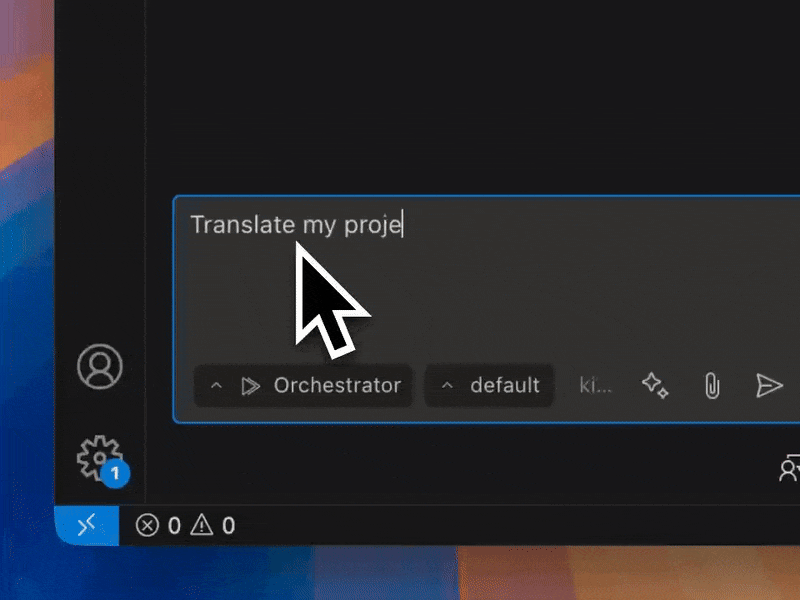
As an open-source tool, Kilo Code builds upon popular projects like Roo Code and Cline. It comes pre-loaded with over 400 models and supports a "Bring Your Own Key" (BYOK) model for flexibility. Its modular architecture allows you to extend the agent's skills to call external APIs or manage complex workflows.
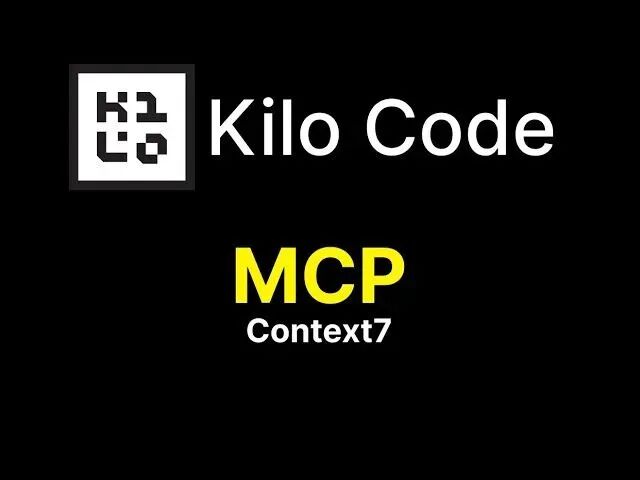
With nearly 10,000 GitHub stars and over 290,000 VS Code installations, Kilo Code is a popular alternative to commercial competitors.
2. Cline: Autonomous Open-Source Coding Agent
In a nutshell: One of today's most popular open-source autonomous coding agents that plans and executes tasks with developer approval.
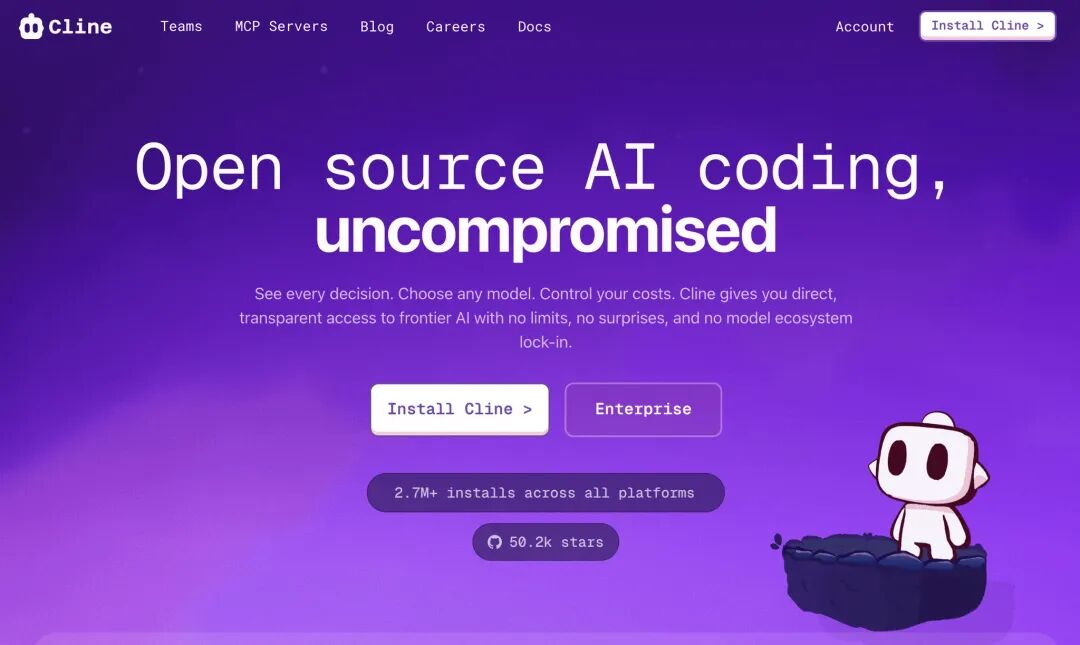
Founded by Saoud Rizwan, Cline is an open-source AI coding agent that balances autonomy and control. The agent breaks down development tasks into a multi-step plan but requires developer confirmation before executing each step, ensuring transparency.
In its "Plan Mode," Cline scans the entire codebase to build context, then collaborates with the user on an execution strategy before writing code. You can observe in real-time as it reads files and suggests changes.
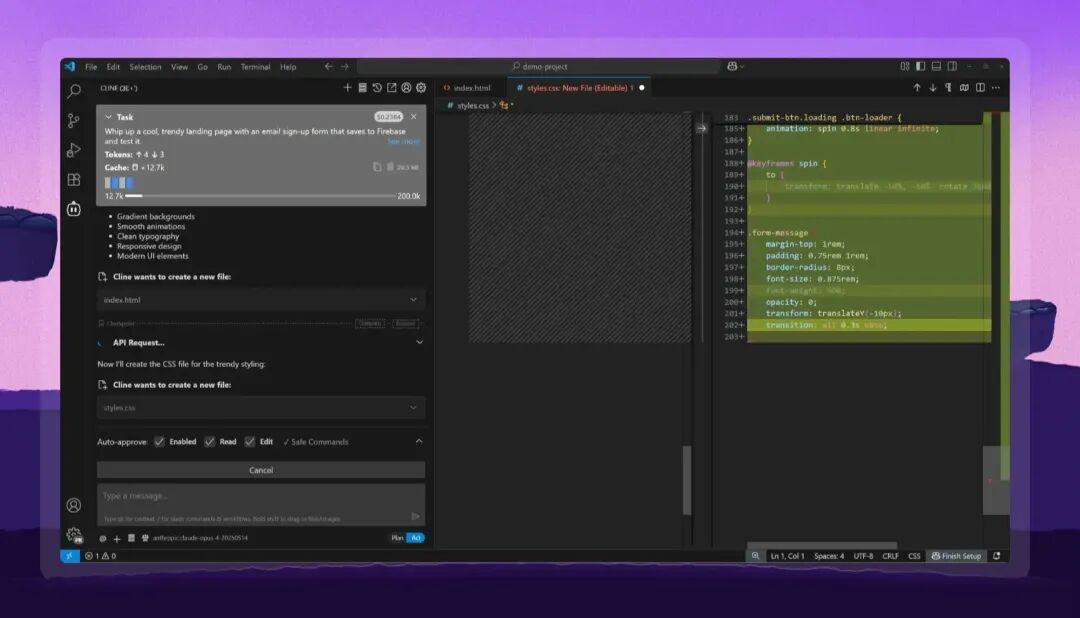
Cline's major strength is its open ecosystem, with native support for providers like OpenRouter, Anthropic, and OpenAI, plus local models via Ollama and LM Studio. Its extensible architecture offers greater flexibility, making it a powerful tool for simulating a human engineer's workflow.
Currently, Cline boasts over 50,000 GitHub stars and more than 2 million VS Code installations.
3. BLACKBOX.AI: All-in-One Commercial AI Coding Suite
In a nutshell: A polished, all-in-one commercial AI coding suite for individuals and enterprises, featuring an IDE and autonomous agents.

BLACKBOX.AI is a comprehensive commercial product offered as a VS Code extension, web app, and dedicated desktop application.
Its flagship feature, Robocoder, allows users to describe an application in plain English, and the system generates the front-end and back-end logic in real-time.
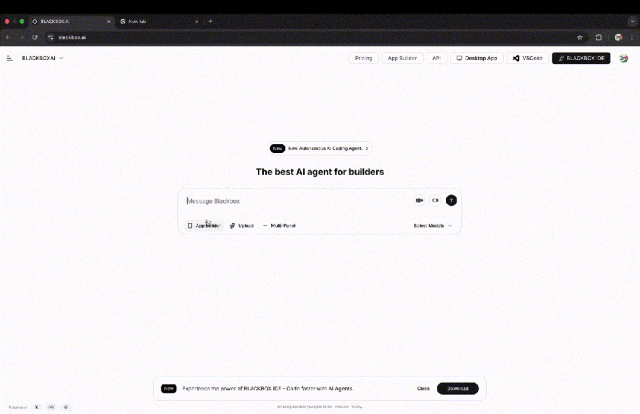
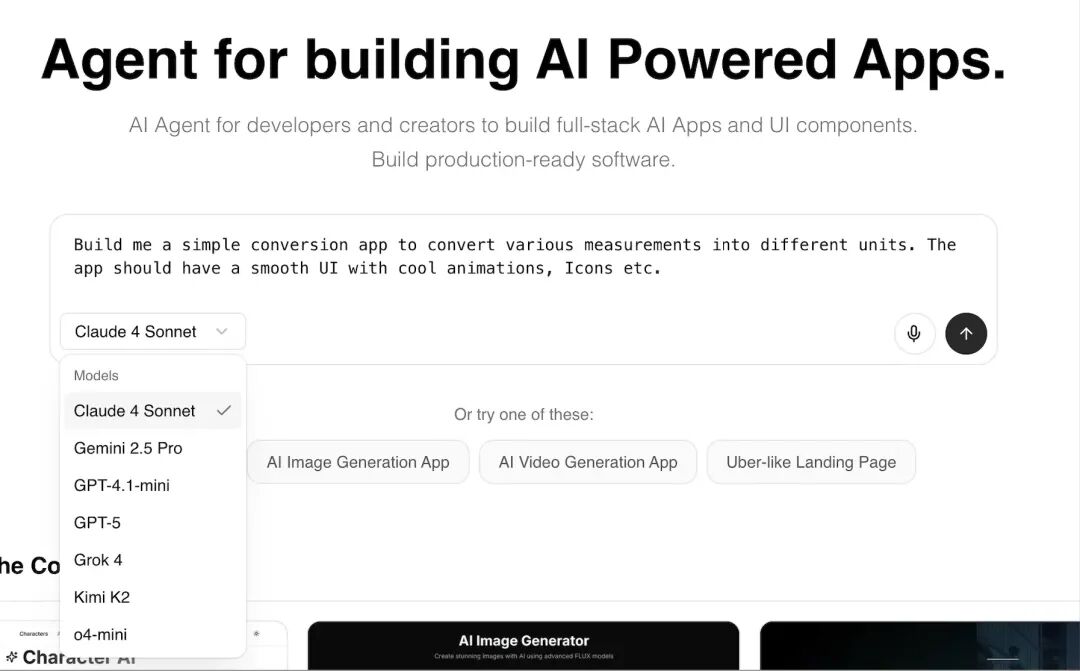
The platform offers both a supervised mode requiring approval for changes and a fully autonomous mode where the agent plans and executes complex tasks on its own.
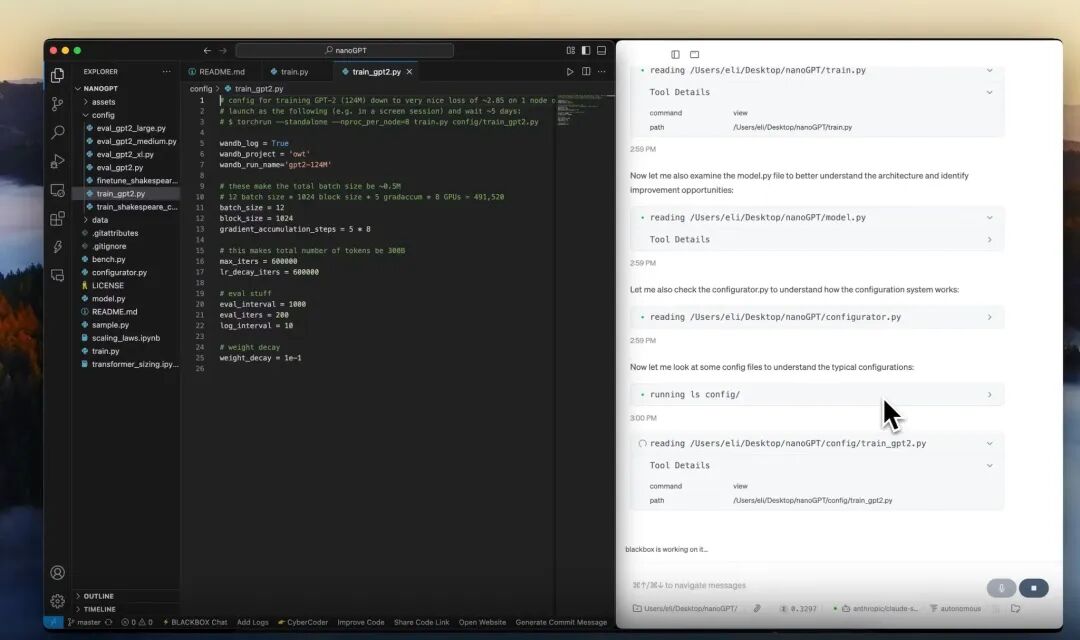
Unlike open-source agents, BLACKBOX.AI delivers a seamless, all-in-one solution that bundles code completion, debugging, and documentation into an intuitive package. With a claimed user base of over ten million, it is a commercial powerhouse in the AI development space.
4. Roo Code: Open-Source AI Agent for VS Code
In a nutshell: An open-source VS Code plugin that brings an AI agent into your editor to read, write, and debug code locally.
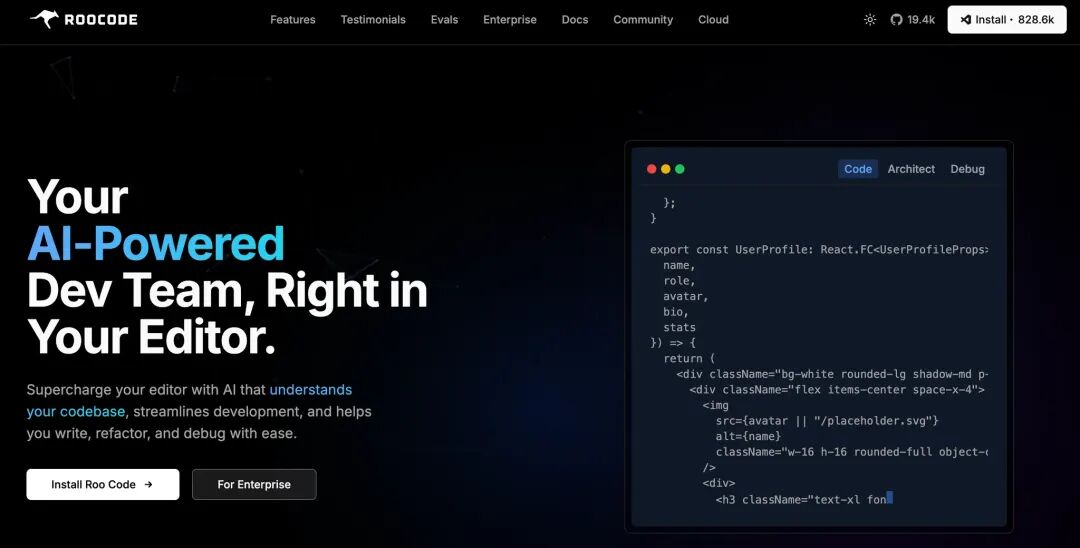
Roo Code is an intelligent agent integrated into VS Code that functions like an AI pair-programmer. Its core differentiators from competitors like GitHub Copilot are its openness and control.
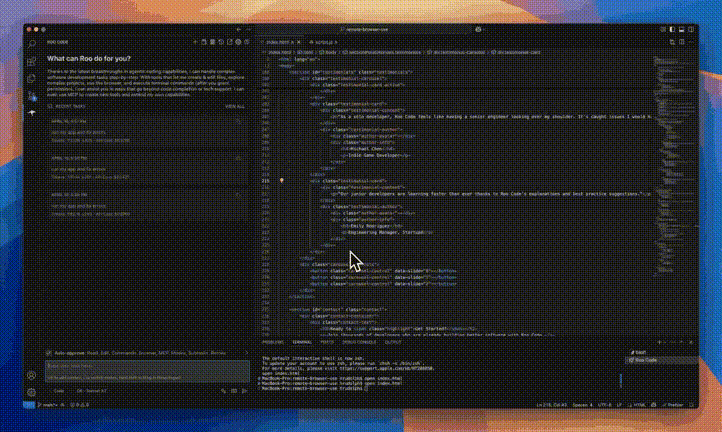
As a fully open-source project, Roo Code can connect to any model of your choice, including local LLMs. It has a holistic, multi-file understanding of the codebase, enabling large-scale refactoring across dozens of files with user confirmation.
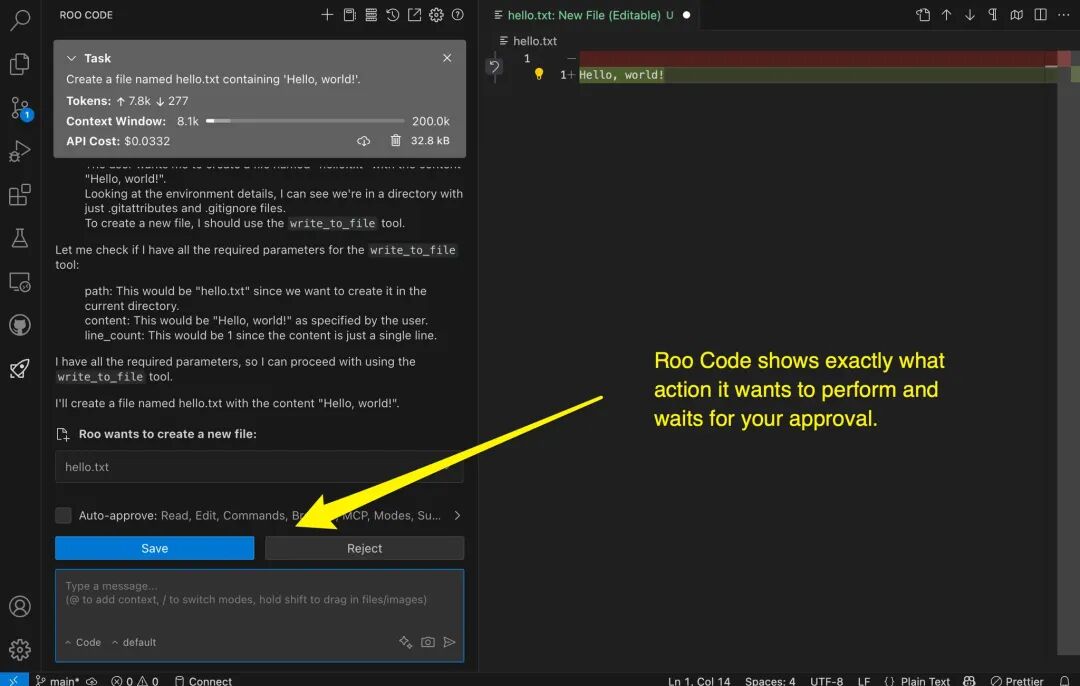
The tool is free, with users only paying for the model APIs they consume. For security-conscious teams, Roo Code can operate in a fully offline environment, ensuring proprietary code remains on the local network.
5. liteLLM: Universal LLM API Translator
In a nutshell: An open-source library that acts as a universal translator for over 100 large language models, simplifying API calls.
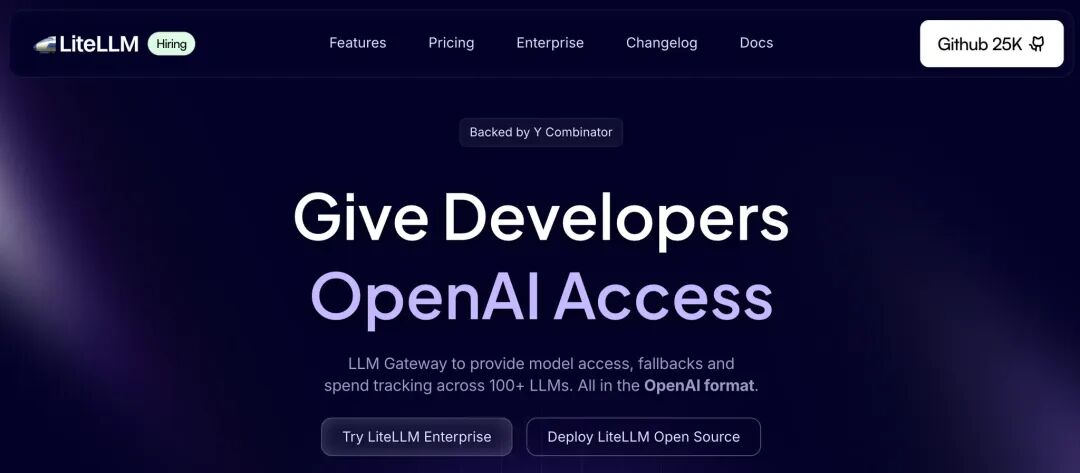
LiteLLM is a versatile tool for LLM integration, providing a single, unified interface to access over 100 different models. It maintains the familiar OpenAI API format, allowing developers to switch between providers like Anthropic, Google Gemini, and AWS Bedrock without changing their application code.
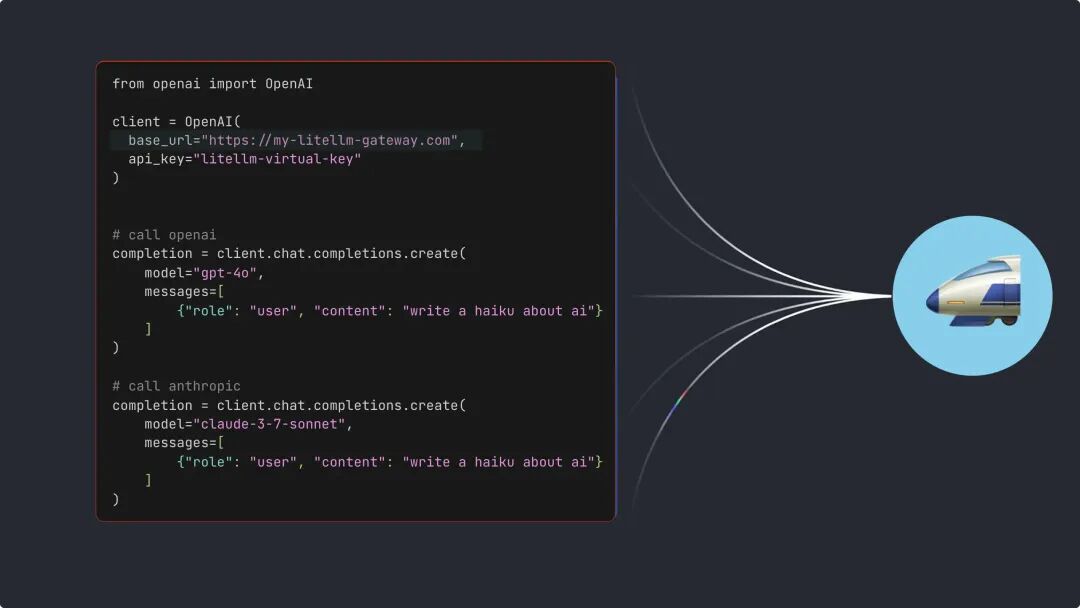
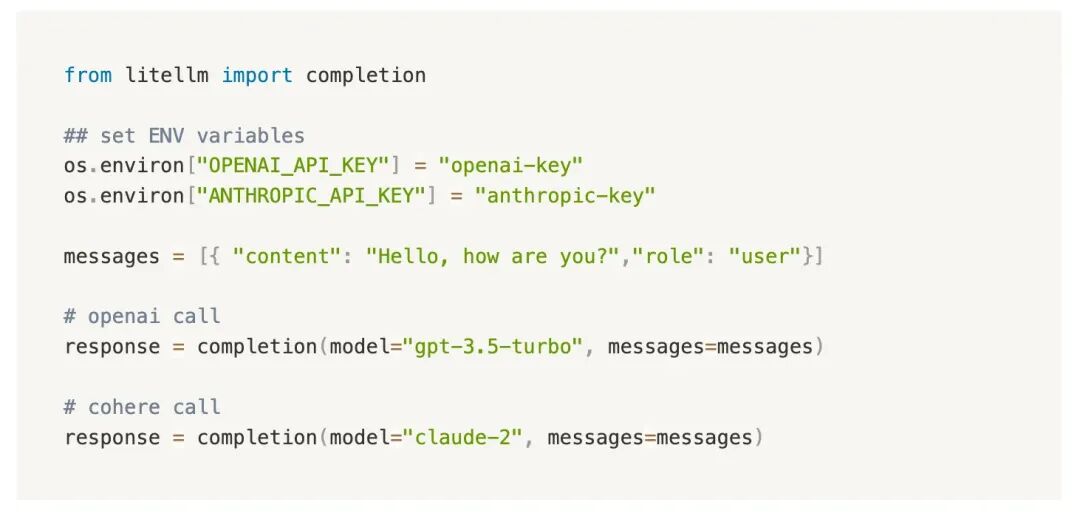
Beyond unifying API calls, liteLLM is a valuable tool for cost management with built-in spend tracking. For reliability, it offers automatic fallbacks, rerouting requests to a backup if a primary provider has an outage.
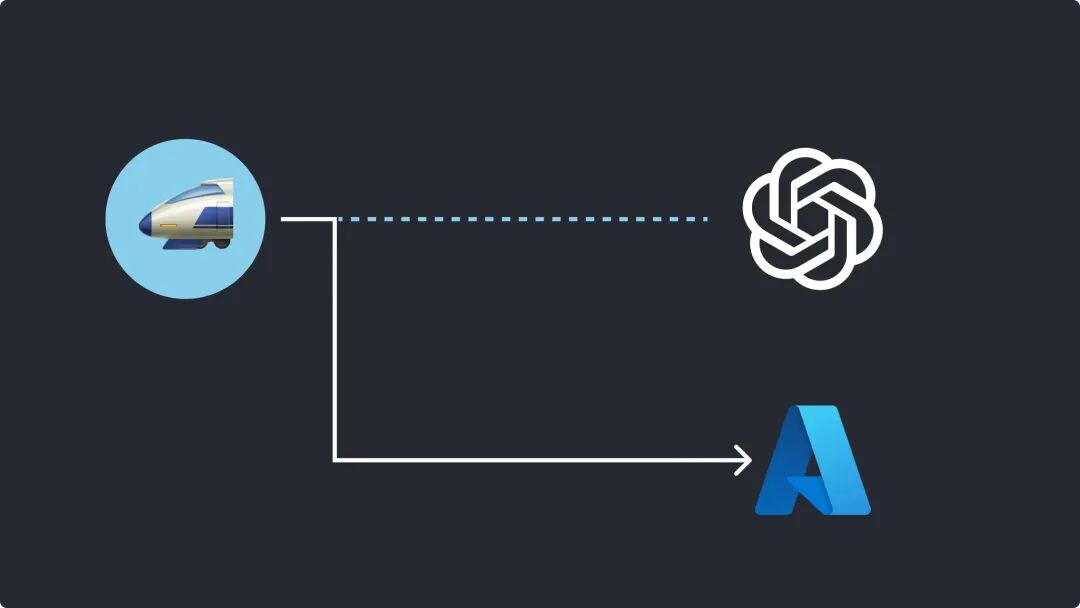
For engineering teams, liteLLM provides a proxy that can be deployed as a centralized LLM gateway for an entire organization to manage keys, rate limits, and compliance.
10. Codebuff: AI Coding in the Command Line
In a nutshell: A command-line tool that lets you code with natural language, like having a senior engineer available 24/7 in your terminal.
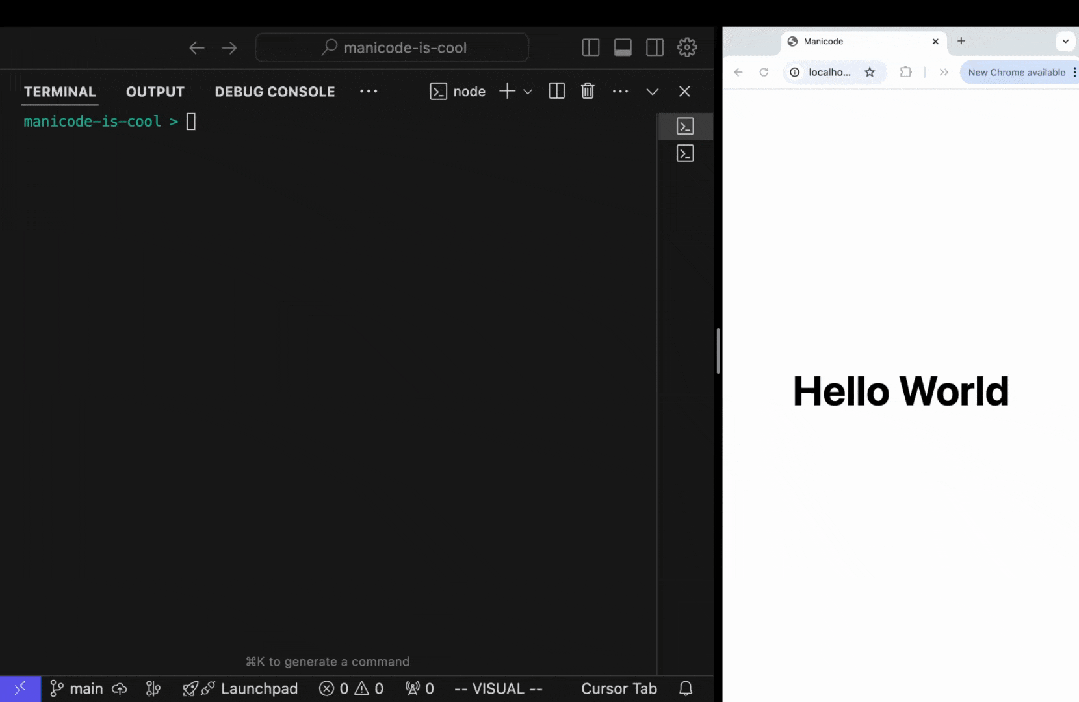
Codebuff is a powerful CLI tool that allows developers to modify code, run commands, and refactor projects using plain English directly from the terminal. It's not just an autocomplete tool; Codebuff analyzes the entire codebase to perform complex operations.
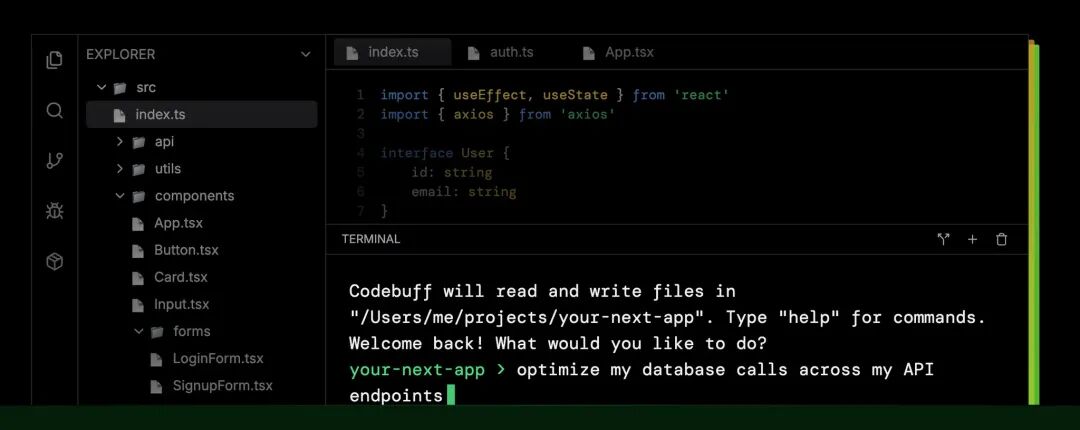
Targeted at professionals, Codebuff's standout feature is its context-building mechanism. It generates and maintains a knowledge.md file, learning a project's dependencies and coding style to make increasingly intelligent suggestions.
Top AI Role-Playing and Entertainment Platforms
6. SillyTavern: Advanced Frontend for LLM Role-Playing
In a nutshell: A powerful, locally-run frontend for LLM-based role-playing, built for power users who demand granular control.

SillyTavern is not an AI model but a feature-rich user interface for immersive character interaction. As a locally installed application, it acts as a command center, allowing users to connect to text-generation LLMs, image-generation engines, and text-to-speech models.

The core of SillyTavern is its "Character Cards," which define a character's personality and backstory for consistent interactions. It also supports Retrieval-Augmented Generation (RAG) and web search, making it a comprehensive sandbox for building rich, multimedia-driven scenarios.
7. ChubAI: Creative GenAI Platform for Role-Players
In a nutshell: A creative GenAI platform for writers, role-players, and character creators who value freedom of expression.
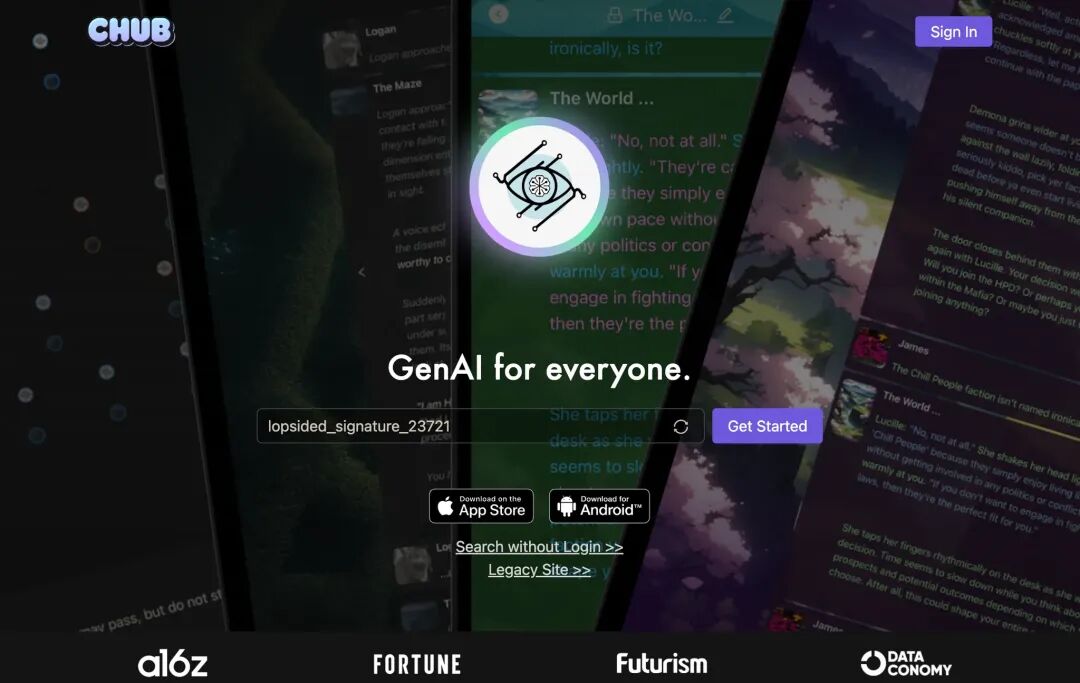
Chub AI has established a niche as a vibrant platform for character interaction, differentiated by its extensive customization and commitment to creative freedom. The platform does not impose content filters, allowing users to explore any interaction they can imagine.

Chub AI supports group chats where multiple characters can interact, creating dynamic story threads. Users can also build a "Lorebook"—a shared knowledge base—to ensure characters remain consistent with the world's rules.
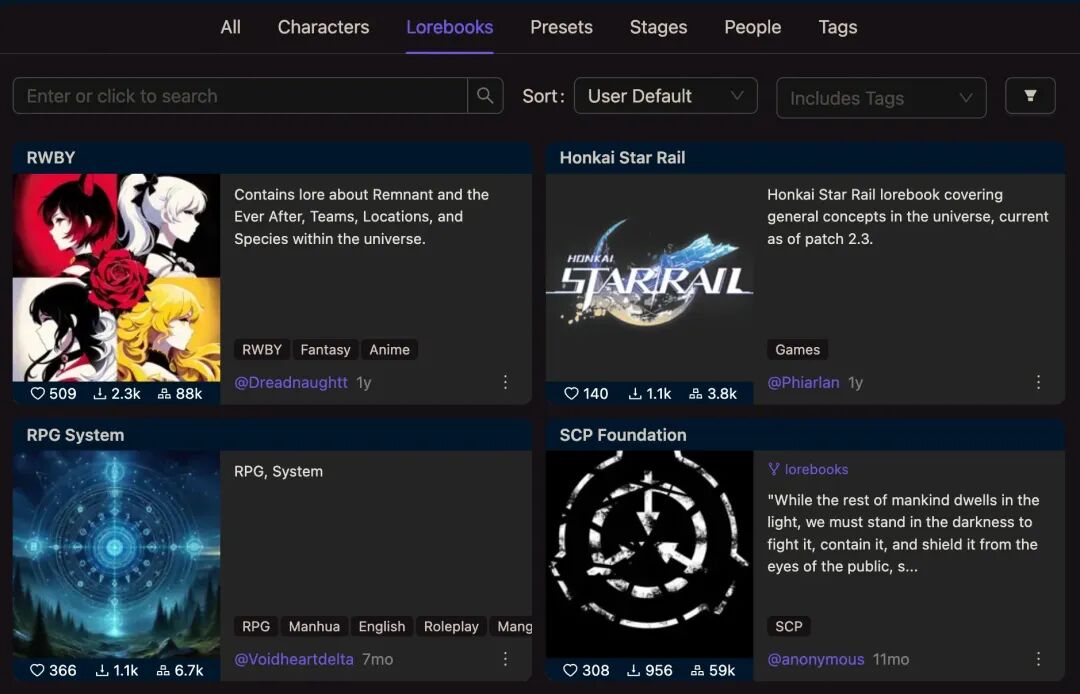
8. HammerAI: Privacy-Focused Character Chat Platform
In a nutshell: A character chat and story generation platform built for users who demand privacy, performance, and creative freedom.
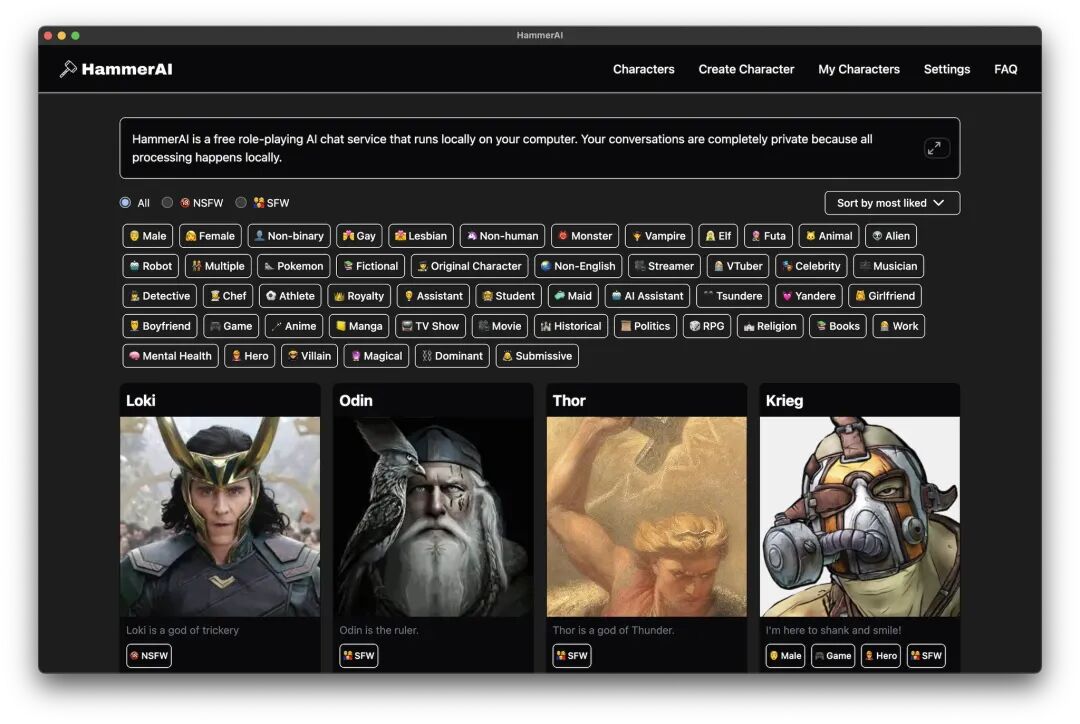
HammerAI is an interactive platform for conversing with AI characters. Its primary selling point is a strong commitment to privacy. All conversations can be saved locally, and when used with a local model, user data never leaves the machine.

A key feature is its built-in Ollama integration, which automatically configures a user's GPU to run local models at high speeds. This combination of privacy and performance gives HammerAI a unique position among AI role-playing platforms.
9. Sophia's Lorebary: Expansion Pack for AI Role-Playing
In a nutshell: An "expansion pack" for role-playing tools like JanitorAI that adds deep lorebook, scenario, and plugin management.
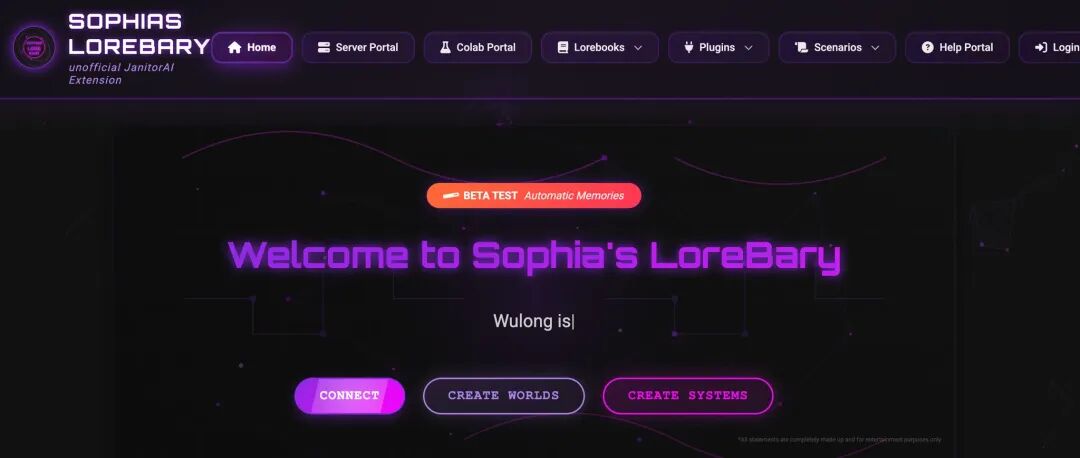
Sophia's LoreBary is not a standalone chat client but an auxiliary system that enhances existing role-playing tools. It helps users create richer and more consistent interactive experiences through three core features: lorebooks, scenarios, and plugins.
A lorebook acts as a knowledge base, giving an AI character long-term memory. Scenarios are pre-defined plot setups for more structured narratives. Plugins are add-ons that extend the system's capabilities.
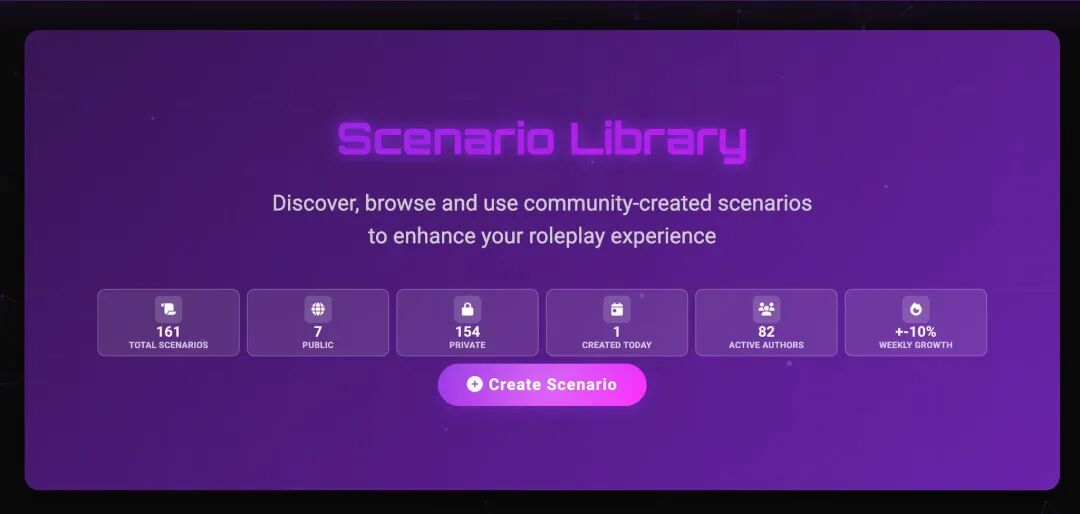
Together, these elements transform a simple chatbot into an immersive world with memory, plot, and rules.
The Dual Frontiers of the Underground AI Economy
The OpenRouter data reveals a clear split in the independent AI landscape. Demand is overwhelmingly focused on two areas: highly practical AI coding agents that boost developer productivity, and deeply engaging entertainment platforms that offer creative and emotional outlets.
These are not the walled gardens of tech giants. They are challengers thriving in the open, defined by genuine utility and passionate communities. They represent the raw, authentic pulse of AI innovation, showing where developers and creators are willing to invest their own resources. As the AI industry matures, this underground ecosystem will be a critical space to watch.

Key Takeaways
• Explore the top 10 underground AI tools for practical applications in coding and role-playing.
• Analyze real API data to identify tools with sustained, practical use beyond initial hype.
• Stay informed about emerging AI trends to leverage innovative tools in your projects.